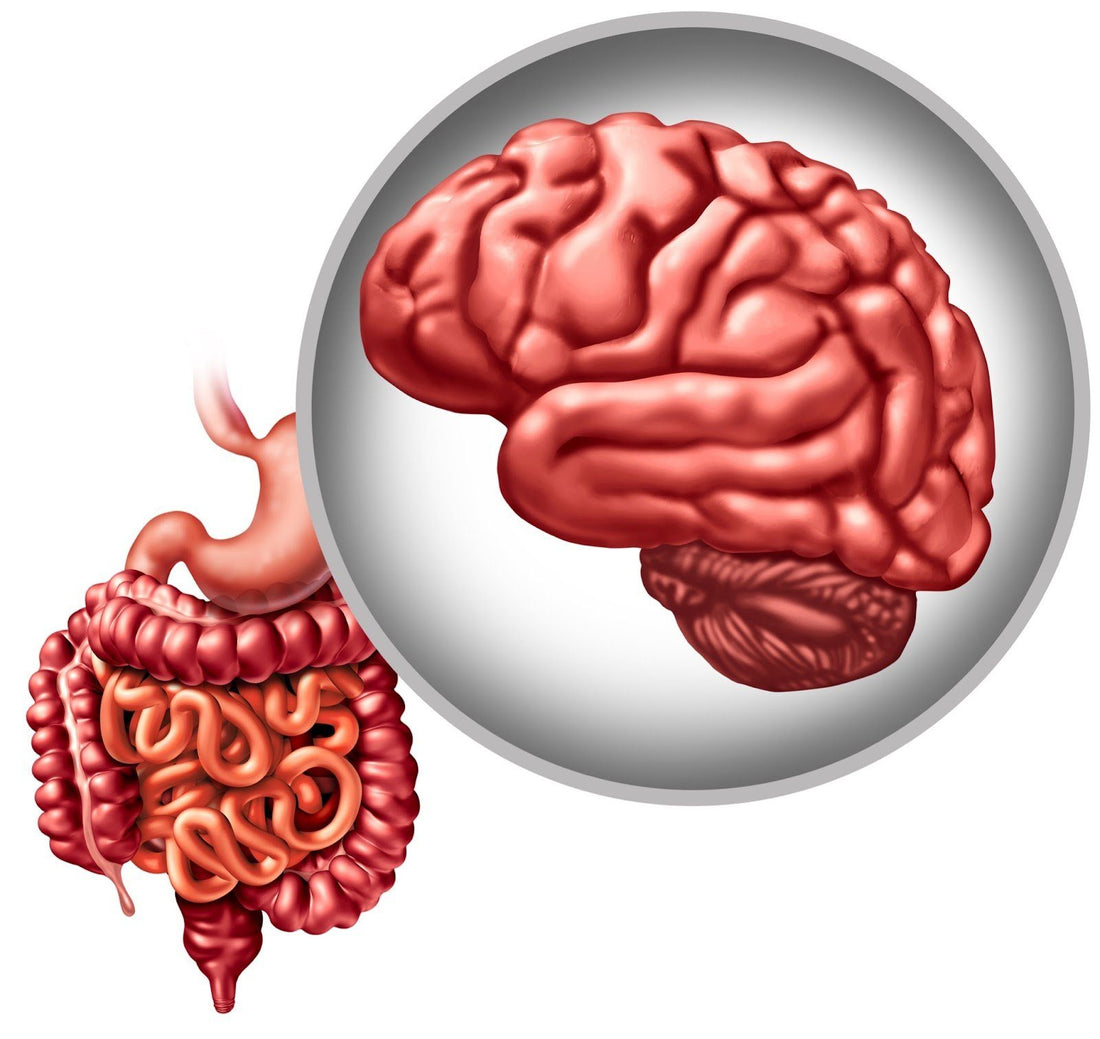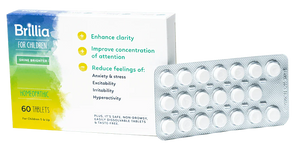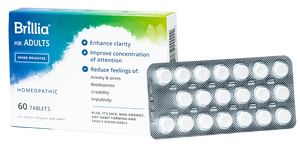Does gut bacteria affect brain function? This is what researchers set out to explore in a 2019 study that reviewed several recent works on the role of gut microbiota.1 What they found was that gut microbiota isn’t just crucial in the development of brain function, but also in the pathology of stress-related diseases and neurodevelopmental disorders. Find out how gut health affects the brain, signs of an unhealthy gut, and steps you can take to achieve a healthier gut and happier mind.
How Gut Health Affects the Brain
The communication system between your gut and your brain is referred to as the gut-brain axis. There are approximately 500 million neurons in the gut that connect to your brain through your nervous system, specifically the vagus nerve.2 These neurons send signals throughout your body to maintain homeostasis, achieving a number of crucial bodily functions, which include controlling your mood, modulating inflammation, regulating food intake, and more.3 A large portion of serotonin, a mood modulator referred to as a “happy chemical” , is also synthesized in the gut.4 When the gut is unhealthy, and harmful bacteria outweighs good bacteria, you may experience anxiety and stress. The reverse is also true: when you are constantly anxious or stressed out, you wreak havoc on your gut microbiome, which may lead to gastrointestinal issues.
Symptoms of an unhealthy gut include:
- Stomach discomfort, including bloating, constipation, and abdominal pain
- Fatigue5
- Skin issues, including psoriasis, eczema, and acne6
- Mood disorders like anxiety and depression7
- Unintentional weight changes8
Stress & the Gut-Brain Connection
The gut and the brain are a two-way highway, which means intestinal distress can be the product or the cause of anxiety, stress, and depression. Chronic stress isn’t always to blame either. In one 2014 study, researchers found that even short-term exposure to stress can impact gut microbiota.9 Other studies showed that experimental alterations in gut microbiota resulted in anxiety-like behavior.10 One reason stress causes intestinal upset is by altering the body’s inflammatory response.
Inflammation & the Gut-Brain Connection
When we are exposed to stress, the body goes into the “fight or flight response,” readying itself to fight or flee a perceived threat. This triggers the release of the hormone cortisol, which temporarily ceases non-essential bodily functions like digestion. Cortisol is crucial in regulating both the inflammatory and immune response, but when we are chronically stressed, inflammation becomes an automatic response to stress, taking a massive toll on our system, and leading to a number of afflictions in the gut and throughout the body.11 This includes indigestion and ulcers as well as various inflammation-related afflictions, such as cardiovascular disease, cancer, diabetes mellitus, chronic kidney disease, non-alcoholic fatty liver disease and autoimmune and neurodegenerative disorders.12,13
Your Gut & Mental Health
Brain imaging studies have found that probiotics, which are microorganisms designed to restore gut flora, have the power to alter brain activity and positively affect brain health.14 According to Jay Pasricha, M.D., director of the Johns Hopkins Center for Neurogastroenterology, the gut has a “brain” of its own called the enteric nervous system (or ENS).15 He credits the ENS for triggering emotional shifts experienced by people battling gut issues like irritable bowel syndrome and stomach upset. He says, “For decades, researchers and doctors thought that anxiety and depression contributed to these problems. But our studies and others show that it may also be the other way around.” When there is irritation in the gastrointestinal system and the gut is imbalanced, our mood shifts, and not for the better. This may be why the prevalence of depression and anxiety in irritable bowel syndrome patients is 37.1 and 31.4 percent respectively according recent studies.16
Ways to Improve Your Gut Health
Fortunately, there are ways to improve gut health and positively affect our brain function and mood. Keeping in mind that the gut-brain connection works in both directions, the following tips offer a comprehensive approach:
- Lower stress levels by practicing mindfulness and relaxation techniques like slow breathing, meditation, yoga, and tai chi
- Prioritize sleep by practicing good sleep hygiene and aiming to get 7-8 hours each night
- Eat a nutritious diet of fruits and vegetables, and include fermented foods like sauerkraut, yogurt, kimchi, kefir, and kombucha
- Consider taking a prebiotic or probiotic supplement designed to restore gut flora
- Drink plenty of water, which aids digestion and has a beneficial effect on the mucosal lining of the intestines
- Rule out food intolerances, which may cause inflammation in the gut and lead to stress, anxiety, and general discomfort
- Reduce sugar intake, which can also negatively impact gut microbiota
Since low stress levels are associated with a healthy gut microbiome, we also suggest trying Brillia if stress and anxiety are an ongoing issue.
Brillia is a non-prescription, homeopathic medication that is designed to reduce feelings of stress, anxiety and irritability while enhancing focus and mental clarity. Brillia does not contain any harsh chemicals that cause harmful side effects like an upset stomach or weight changes and it has no contraindications, so you can safely add it to your regimen even if you are already taking another medication. Brillia works best in combination with healthy lifestyle choices, such as following a nutritious diet, controlling screen time, getting adequate sleep and practicing mindfulness. Learn more about how Brillia works.







